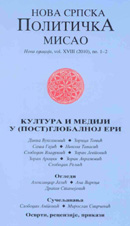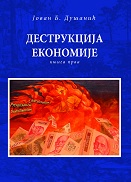Relationships between Russia and Ukraine are now in situation when it becomes necessary to redefining their bases. In the focus is agreement about stay of Russian Black Sea fleet at Krim peninsula, and “The Great Agreement” about cooperation between Russia and Ukraine. New Ukrainian government formed in the end of 2007 (as opposed to previous government) has worse attitude to inhabitants of eastern part of country and pro-Russian population of Ukraine and to officially Moscow too.
Terms and conditions of Russian Black Sea fleet presence are defined by particular trans-national agreement which is valid until 2017 and depends on confer of Krim’s harbor Sevastopol (or on confer of Krim itself). Concerning that teams of experts agree on the following:
Question about status of Krim is opened question because transfer of Krim from Russia to Ukraine couldn’t be achieved juridical (Krim was as addicted by arbitration and pressure of contemporary president of USSR Hruschof who was Ukrainian, but without this town). Sevastopol is presumed as Ukrainian in international documents only in Russian-Ukrainian so-called Big Agreement which is valid until October this year. After October Sevastopol will lose status of Ukrainian town by most of Russian politicians and experts, unless the agreement extends.
Among Russian members of Parliament in Duma and Senate there is an attitude that this agreement couldn’t be prolong by official Moscow because official Kiev has broken it many times by their military-political, culturally and propaganda-informational measures. At first, it was broken paragraph 6 which says that both sides will not take measures against each other. But for example since Jushchenko took power Ukraine constant proclaims unilateral decisions about Russian fleet presence on territory of Ukraine without previously consultations with Russia which means breaking agreement about stays of Russian fleet on territory of Ukraine, i.e. against Russian’s interests. Also Jushchenko’s intention to indent Ukraine in NATO and hereby to break neutrality of country, and even if it completes in future (although it is not will of most Ukrainians and 2/3 of them are against NATO), it would be bring the country in military-political alliance which is strictly against Russia. The second point is that the members of Russian Duma believe that official Kiev took some measures since forming new government which bring mass breaking rights and freedom of Russians and all Russian-language population in Ukraine and thereby created conditions for fast assimilating them. On the same line is order from Kiev to close schools in Russian language and embargo for television and radio emissions in Russian language (except in very bit cases), undertaking campaign for derussification or ukrainization of eastern Ukraine and Krim (some of donors are governments of Baltic republics), great enlarge taxes for them who want to abdicate Ukraininan citizenship, breaking formerly united Orthodox church for creating several smaller pocket version of churches, etc. All together it means breaking paragraph 12 of “The Great Agreement” which is about cooperation between Russia and Ukraine in protection of minorities and their rights to self-determination, their self-identity, their rights to schooling in native language and preserving their culture and religion1.
Therefore Russian Duma, in the beginning of June, offered to propound a question about nonobservance of international law norms in Ukraine especially in education sphere, informing in native language and government structures interference in authority of Ukrainian Orthodox Church, and Moscow patriarchy2.
Even 1948 Sevastopol had been segregated from system of Krim and became separately territorially entity belonging to Russian Federation. It was exuceted by decree of Presidium High Council of Russian Federation “About separating of Sevastopol as independent administrative-economic center” from October 29, 1948. Krim (Krim peninsula or Krim area) was handed over from Russia to Ukraine barely 6 years later by resolution of High Council of Russian Federation “About transposing Krim area from the system of Russia to system of Ukraine” in February 5, 1954. In this decision there was no any mention of changing Sevastopol’s status. Also there was no mention of Sevastopol in decision of High Council of USSR from February 19, 1954, or not even in Soviet law from April 26, 1954 which have been confirmed decision of High Council of Russian Federation about handover of Krim area. Until October 1991 when USSR was decomposed Sevastopol was economic, financial, and direct dependent on Ministerial Cabinet of USSR without intervening of any governmental body of Ukraine.
Those whose position is that Sevastopol legally belongs to Ukraine allude that particular status of Sevastopol was not confirmed in Constitution of Russian Federation. But there was no city with confirmed status in the Constitution (for example Moscow) because there was no any divider for listing of settlements with particular status.
The second argument is that after separating Sevastopol from the system of Krim area, hand over Krim to Ukraine, city organization of Communist Party was dependent on Ukrainian committee of CPSU. However it is not easy to consider status of some party structure in organization as a status of government arrangement and use it as a proof of Sevastopol’s Ukrainian status.
The third argument is Constitution of Ukraine from 1978 where in paragraph 77 Sevastopol was indicated as a part of Ukraine. But without agreement of Russian Federation (which was not an autonomous subject at that time) this hand over could not be considered as a legal decision.
Many other attempts of vindication today’s status of Sevastopol are not satisfying3. The attitude of today’s Ukrainian leadership about Russian fleet is not analogous to attitudes of Sevastopol’s and Krim’s inhabitants what means that official Krim affects independent of its own region population. In October 2007 juvenile politically movement “Mi” (“We”) realized study of public opinion in Sevastopol. It indicated that 80% of population have negative attitude about today’s status of Sevastopol in Ukraine, and 92 % population stand for changing status and return in Russian status. Their own attitude population of Sevastopol once more showed when they opened the monument of Empress Katherine the Great4.
The Sevastopol assistant of the mayor Vladimir Kazarin suggested triennial moratorium debate about retreating Russian troops from Ukraine. In May 2, at Krim has started gathering signs for petition about limitless presence of Russian Black Sea fleet in Ukraine. The action continues until July, but in first month they collected over 1 million and 70 thousand signs even in conditions when highest official leadership in Kiev trying to get rid of the fleet. In 21 May president Jushchenko asked for Ministerial cabinet to elaborate plan of law about retreating Russian fleet from Ukraine. Thereby Jushchenko strengthened decision of Ukrainian Council for National Security and Defense from May 16 about agreement with Russia considering stay of Russian fleet.
Ukrainian president Jushchenko is in situation to direct confront with pro-Russian population and wider Russian interests in region. Unlike Julia Timoshenko, Jushchenko himself is directly and strategically associated to American politics, although last years he rises to measured and tactful politician5. Julija Timoshenko has no priority to put Ukraine in NATO although she asks for support at West, like Jushchenko does. During visiting Kiev by NATO leadership in June massive anti-NATO demonstrations and protests were happened and even the NATO flag was burned6. Jushchenko is pretty alone in trying to include Ukraine in NATO at any price and even his party dispersals during that time. So, the member of his party in Ukrainian parliament (Vrhovna Rada) and his godfather David Zvanija which was one of the sponsors of orange revolution 4 years ago, denied in public Jushchenko's poisoning during the campaign election of that time which attracted a lot of a media attention and Jushchenko imputed this to his political rivals7. After that Zvanija remarked that Jushchenko’s wife still has double citizenship (American and Ukrainian) which is illegal by the Ukrainian Constitution8. Pro-Russian Regional party as the strongest in the parliament, like as other opposition parties (communists and Party of Litvinov ), all have only two members of parliament less than regime coalition Jushchenko-Timoshchenko, strongly go against joining the NATO process. Considering all of that, the new parliament and president elections are expected until the end of this year (2008).
PhD Dragan Petrovic, expert-associate of Institute of Political Studies in Belgrade
www.petrovicdragan.com
Footnotes:
1. www.vz.ru/politics/2008/5/29/172685.html
2. Glas Javnosti 5 jun 2008 pamphlet “ Russia to break the agreement about friendship”
3. hftp://ukrstor.com/fedorov-pravstatus.html,
4. “Politika” , 16 jun 2008.
5. How many Jushchenko politically determined to American politics is indicated in creating camps in Ternopol and the other nearly Lavov for training ‘’pacific’’ revolutionists-activists from Byelorussia which need to depose Lukashenko realized by Jushchenko’s organization «UNA-UNSO» (Ukrajinska nacionalna asambleja Ukrainian selfdefence ) and funding the famous american NDI (National Democratic Insitut ) managed by Madelin Olbright . The Byelorussian National TV in co-production with informative agency ''Telegraf'' created and showed telefilm about it in June .
6. «Politika» od 17 jun 2008.
7. Serbian party paper'' Glas Javnosti '' 3 jun '' Jushchenko was not poisoned''.
8. There is some assumption that Zvanija said to oposition datas about kept USA citizenship of Jushchenko's vife and that was the reason why member of Comunist Party Leonid Grach looks for investigating about this case.
|




.jpg)





















